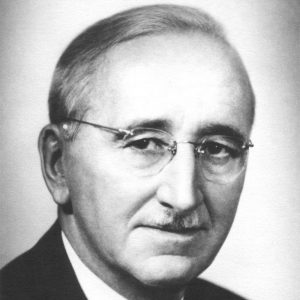The Road to Serfdom Summary
5 min read ⌚

Back in 1944, many people around the planet believed that socialism is the road to freedom and equality.
Friedrich Hayek begged to differ. As far as he was concerned, socialism was not that different from fascism.
And if it trod any road – it trod “The Road to Serfdom.”
About Friedrich August von Hayek
Friedrich August von Hayek was an Austrian-British economist and philosopher, one of the most famous proponents of classical liberalism and libertarianism in the 20th century.
was an Austrian-British economist and philosopher, one of the most famous proponents of classical liberalism and libertarianism in the 20th century.
In 1974, he won the Nobel Memorial Prize in Economic Sciences, sharing it with Swedish economist Gunnar Myrdal.
A Fellow of the British Academy, in 1984 Hayek became a member of the Order of the Companions of Honour. That same year he also became the first recipient of the Hanns Martin Schleyer Prize.
He is widely considered one of the greatest economists in history.
“The Road to Serfdom Summary”
After five years of devastation and dread, 1944 was a year of hope. The Russians finally managed to gain momentum against Nazi Germany on the East, and the D-Day was about to seal Hitler’s destiny on the Western front.
However, Austrian-British economist Friedrich Hayek wasn’t in such a jubilant mood. As far as he was concerned, the battle had merely begun.
Because what had happened to Germany in the decade before Hitler was now about to happen to the world.
It just had a different name now: socialism. And it was embraced by millions.
Now, having the luxury of hindsight, you would think that Hayek is probably speaking about Eastern European countries, right?
Guess again!
Hayek was afraid because he thought that he had noticed a strange and unsettling pattern. And it had two threads.
The first one was the striking similarity between socialism and Nazism. Most of the intellectuals at the time believed that Nazism arose as a reaction of the upper classes against the socialism of the lower classes.
After all, Nazis came to power after blaming the communists for the Reichstag fire in 1933! And they considered the Soviet Union their arch-nemesis.
Irrelevant, said Hayek!
Because both Nazism and socialism can exist only when the state has total control of the means of production and propaganda. And that’s the most frightening part.
You see, Hayek believed that after the First World War, in an attempt to respond to the monetary crisis, the social democrats in Germany increased the state control of the economy. And, inadvertently, paved the way for Hitler.
And that’s the second thread Hayek noticed. The one which, to him, seemed even worse than the first one. Namely, that Western economies, at the time, were not much different than the economy of Germany between the wars.
Remember?
Most of the Western countries alleviated the effects of the Great Depression using Keynesian methods.
And they worked! But, in a nutshell, that meant that the governments started bailing out the private companies by spending money they didn’t have.
And it also meant that the people, whether in US or UK, started believing their governments more.
“We,” wrote Hayek, “have in effect undertaken to dispense with the forces which produced unforeseen results and to replace the impersonal and anonymous mechanism of the market by collective and ‘conscious’ direction of all social forces to deliberately chosen goals.”
If that’s a complicated and long sentence for you – don’t worry: we’ll break it down!
Namely, Hayek claims that, just like evolution, the free markets may be unpredictable, but in time result in increasing the wealth of the nations.
Central planning is much more predictable – but, in his opinion, a thousand times more dangerous.
Why?
Because, for one, it’s hypocritical.
It claims that it works for the liberty of everyone, when, in fact, there’s no way that it can ever be instituted in such manner in a democratic society.
Even if a large majority supports it, the minority which doesn’t will have to be violently forced to give up its private ownings – for the greater good. However – and this is even worse – that greater good has to be consciously decided by a group of people.
In 1921, describing the inevitability of class struggle, Lenin asked “Who, whom?” implicitly jumping over the verb “overtakes.”
Two decades later, Hayek responded with the same question. In his opinion, however, the original verb was wrong. It should have been “rules.”
There’s no socialist society or a welfare state Hayek is able to envision where the answer to that question is “the best.”
At the top of the government, instead of the benevolent philosophers of Plato, Hayek sees – echoing John Stuart Mill – a tyrannical minority, a group of oppressors who’ll use propaganda, conformity and scapegoats to remain in power.
His solution?
Individualist morality, an economy based on free markets, and an almost total abolishment of governmental control.
And, in more than one way, Hayek was right. What he had predicted, happened in almost all communist countries of the Eastern Bloc.
However, if we’re completely honest, he was also wrong on at least two accounts.
First of all, the Western democracies didn’t become socialist totalitarian states.
And, more importantly, many social welfare states – such as the Scandinavian countries – didn’t end up being totalitarian. On the contrary, in fact, they ended up being freer.
So, maybe the middle path is the right path?
Key Lessons from “The Road to Serfdom PDF”
1. Socialism and Nazism Are Both Threats to Individual Freedom
2. The State Is the Ultimate Monopoly
3. But the State Has to Do At Least Something
Socialism and Nazism Are Both Threats to Individual Freedom
Even though they were fierce enemies at the world’s stage of the 20th century, to Hayek, socialism and Nazism were pretty much the same; and, much more importantly, they were both enemies of humanity in general.
Why?
Because both defended collective values before individualistic. And because, in doing that, they were preparing the path to a complete elimination of liberty.
The State Is the Ultimate Monopoly
One of the worst things people fear in a free market economy is the possibility of a monopoly. Because, in that case you’re at the mercy of a single entity. However, what should you do in the case when the monopoly is not a company – but the whole state?
As Hayek writes: “while the last resort of a competitive economy is the bailiff, the ultimate sanction of a planned economy is the hangman.”
But the State Has to Do At Least Something
Hayek’s words are often taken to mean that libertarian society – one in which the role of the government is virtually non-existent – is the best possible society. However, it’s important to note that he thinks that there’s no such thing as a society without some state control.
In fact, here’s a sentence taken straight out of his book: “no system that could be rationally defended would the state just do nothing.”
Like this summary? We’d like to invite you to download our free 12 min app, for more amazing summaries and audiobooks.

“The Road to Serfdom” Quotes
Probably it is true enough that the great majority are rarely capable of thinking independently, that on most questions they accept views which they find ready-made, and that they will be equally content if born or coaxed into one set of… Click To Tweet Our freedom of choice in a competitive society rests on the fact that, if one person refuses to satisfy our wishes, we can turn to another. But if we face a monopolist we are at his absolute mercy. Click To Tweet One need not be a prophet to be aware of impending dangers. An accidental combination of experience and interest will often reveal events to one man under aspects which few yet see. Click To Tweet Although we had been warned by some of the greatest political thinkers of the nineteenth century, by Tocqueville and Lord Acton, that socialism means slavery, we have steadily moved in the direction of socialism. Click To Tweet To act on behalf of a group seems to free people of many of the moral restraints which control their behaviour as individuals within the group. Click To TweetEmir is the Head of Marketing at 12min. In his spare time, he loves to meditate and play soccer.







